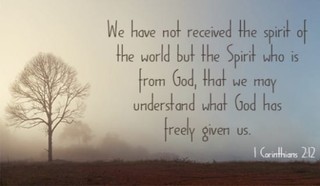
- Recent Translations
- All Translations
Kehillah in Corinth I 2:6
Share
Settings
Images for Kehillah in Corinth I 2:6

Kehillah in Corinth I 2:6 Meaning and Commentary
Howbeit we speak wisdom
Though the wise philosophers among the Gentiles accounted the Gospel foolishness; and though the apostle, by an ironical concession, had called the ministry of it the foolishness of preaching, and the foolishness of God, and had thought best, for wise reasons, to deliver it in a plain and simple manner, without the embellishments of human wisdom; yet he vindicates it from the charge of folly: it was not folly, but wisdom, which he and his fellow ministers preached, and that of the highest kind, as appears from what follows. Though it was not esteemed so by all men, yet
among,
or with
them that are perfect;
adult, at age, opposed to babes and children; such who have their understandings enlightened by the spirit of wisdom and revelation; who have their senses exercised to discern between divine and human wisdom; and who are perfect in a comparative sense, having more spiritual knowledge and understanding than others; for none, in the present state of things, are absolutely perfect in knowledge; they that know most, know but in part: now to such the Gospel and the doctrines of it appear to be the highest wisdom; for the apostle's sense is not that he and other Gospel ministers preached the more sublime doctrines of it to a select set of persons that had more judgment and a better understanding of things than others: if this could be thought to be the apostle's meaning, he might be supposed to allude to a custom among the Jews, not to deliver the sublime things of the law, but to persons so and so qualified.
``Says R. Ame F18, they do not deliver the secrets of the law, but to him who has the five things or characters in ( Isaiah 3:3 ) ''So they did not suffer the first chapter of Genesis and the visions of Ezekiel to be read until thirty years of age F19; and from them the Pythagoreans took their notion of not declaring their mysteries but to (teleioi) , "perfect ones", the word here used F20; but the apostle's sense is, that to such that were perfect, and even to everyone that had the least degree of spiritual knowledge, the Gospel was wisdom. Some refer this clause not to persons, but things; and so the Arabic version reads it, "we speak wisdom concerning things that are perfect"; as the things of the Gospel are, such as a plenteous redemption, perfect righteousness, full pardon, plenary satisfaction, and complete salvation and happiness:
yet not the wisdom of this world, nor of the princes of this world,
that come to nought:
meaning not the idolatry, superstition, curious and magic arts introduced by demons, which principalities and powers, with all their works, are spoiled and destroyed by Christ; but either the political wisdom and crafty schemes of the civil governors of the world, against Christ and his Gospel, who were by this time most, if not all of them, dead; or the vain philosophy of the wise and learned among the Gentiles, who every day were less and less in vogue, through the quick and powerful spread of the Gospel; or rather the highest pitch of wisdom and knowledge in divine things, which the doctors and Rabbins among the Jews attained to in the age before the Messiah's coming; called "this world" in distinction from the times of the Messiah, which in Jewish language was, "the world to come", as Dr. Lightfoot observes; who with all their wisdom were confounded and brought to nought by the superior wisdom of the Gospel.
F18 T. Bab. Chagiga, fol. 13. 1.
F19 Hieron. prefat. in Ezekiel & ad Paulin. Tom. III. fol. 3. 2.
F20 Hierocles in Pythag. Carmin. p. 302.